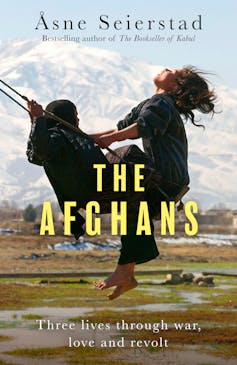Åsne Seierstad’s The Afghans is a gripping depiction of life under Taliban rule
- Written by Susan Hutchinson, PhD Candidate, International Relations, Australian National University

In August 2021, the world was gripped by images beamed from Afghanistan when the Taliban entered Kabul. Terrified Afghans ran for their lives to the airport. People were clinging to the wings of aircraft and holding babies over barbed wire, hoping they would be taken to freedom. Thousands braved the crush outside, as the last of the international planes departed. For months afterwards, tens of thousands more fled overland to neighbouring Pakistan and Iran[1].
When war broke out in Ukraine, international attention waned. The Taliban consolidated its control across Afghanistan. The Islamic fundamentalists increasingly cracked down on women’s rights, in particular.
Afghanistan has now reopened a nascent tourism industry[2]. Some people have even reported an increase in security in the country. But if you are a woman, or are from an ethnic minority, or wish to claim some basic human rights, you will most definitely not experience security.
The Taliban continues to disappear and imprison human rights defenders[3], including those who advocate for the rights of women and ethnic minorities. Law and justice continue to regress to the dark ages. The Afghan economy is in dire straits.
Review: The Afghans: Three Lives Through War, Love and Revolt – Åsne Seierstad (Hachette)
Norwegian journalist Åsne Seierstad is the author of several non-fiction books set in places that have been wracked by conflict. Her interest in violent extremism has taken her all over the world. She has written books about Syria[4], Iraq[5], Chechnya[6] and Serbia[7], as well as a biography of the Norwegian extremist and mass-murderer Anders Breivik[8].

















